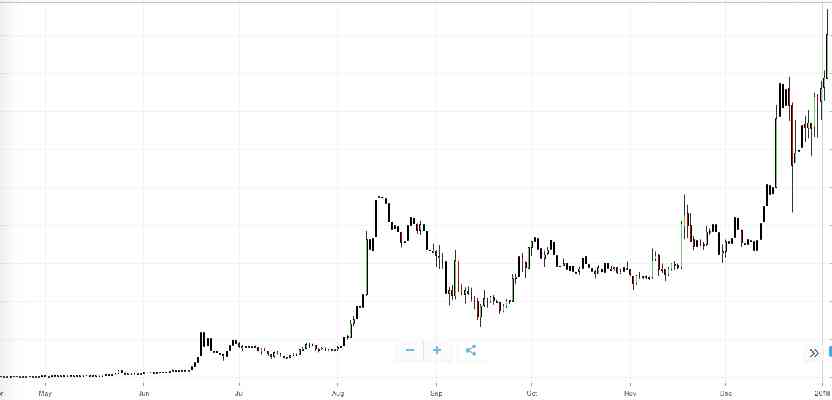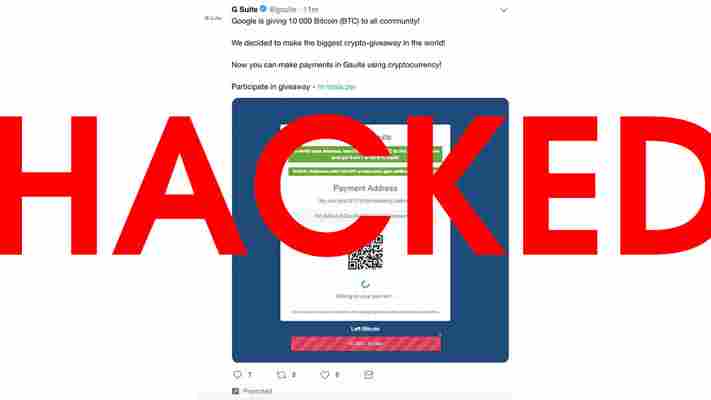NEO is the cryptocurrency backing the namesake blockchain platform that supports the digitization of physical assets and their self-management through smart contracts.

The project was launched in 2014 in China as AntShares, but didn’t garner significant attention until its rebranding as NEO in 2017.
By the time NEO gained any traction, the decentralized application (DApps) market was already dominated by Ethereum. With its growing popularity in East Asia, the project was dubbed to be “Chinese Ethereum” by many in the cryptocurrency community.
This is a charge NEO team disagrees with. As far as they are concerned, the project competes with Ethereum at a global stage and offers significant product and technical advantages.
While Ethereum may be dominating the market now, NEO believes it has a vision for the future, what it refers to as “smart Economy.”
In a smart economy, traditional physical assets are digitized with the help of blockchain and smart contracts, but they continue operating within the governmental framework.
Regulatory compliance is central to NEO’s platform — and the management of these assets happen without anonymity. Every individual or business operating on the Neo platform is required to have a digital identity.
NEO/USD performance review
NEO opened the year 2018 at $ 76.19, a 4,000 percent increase in market price since it was rebranded from AntShares in June 2017.
It shows a distinct growth trajectory in 2017 suggesting its growth to be a result of its own reputation rather than the “crypto boom” that saw the prices of all cryptocurrencies rise.


NEO maintained a bull run throughout the first half of January breaking at $187.97 on January 16 — the highest market price it has ever seen till the end of 2018.
The cryptocurrency saw frequent upswings and market corrections for the rest of January and February. The dominant market corrections ensured that NEO saw a downward trend throughout this period.
The market for NEO saw further decline throughout March. NEO was trading at $142.38 on February 28. By April 7, it was down to 44.91 — a 68 percent drop in its market price.
NEO saw another rally in April after a distasteful March, hitting $92.15 on April 30, a 105 percent increase since April 7 when it broke from the dipping market.
This was the last major rally that NEO saw in 2018. Its price fell continuously through the rest of the year. As of December 15, NEO is trading at $5.65, having lost 97 percent of its market value since January 16!
NEO managed relative gains compared to BTC through much of 2017 and early 2018, but by the third quarter of this year, its performance against the cryptocurrency worsened significantly. NEO saw a 202 percent increase compared to BTC in January. But as of December 2018, the NEO/BTC pair has lost 88 percent of its value since the end of January.
NEO — Major events in 2018
With all the hype and speculations surrounding the NEO project in 2017, it seems that this year much of its focus shifted to Ontology, another project of NEO founders.
While the two projects are distinct with their own boards, they work closely together in “technical cooperation,” according to their founders.
Ten percent of the maximum Ontology (ONT) cryptocurrency supply, i 100 million ONT, was granted to the NEO Council in order to help with the development of the project. In February, NEO Foundation announced that it is airdropping 20 million of these tokens to NEO holders.
In June, NEO’s capital arm, alongside cryptocurrency exchange desk Binance, invested in Republic — a crowd-equity platform for initial coin offerings (ICOs).
NEO courted several controversies in 2018. In a post entitled “NEO Entered the Era of Decentralization” in July, NEO Foundation announced that new consensus nodes on its blockchain were elected through a democratic voting process. But later, it was reported that only two entities voted in the election, including NEO Foundation itself.
The NEO community also appeared divided when the project’s co-founder proposed a new economic model that would make NEO token “divisible.”
In September, NEO Foundation revealed that it had bid $170 million for BitTorrent — an amount significantly higher than the $120 million that TRON’s Justin Sun offered — but the deal was declined by the BitTorrent team as unfavorable.
What to expect in 2019
Ever since its rebranding in June 2017, NEO has been one of the fastest growing cryptocurrencies. While NEO’s centralized governance and ‘digital identity’ model may not be well appreciated within the cryptocurrency community, the demand for such projects is increasing due to increased regulatory crackdowns, especially in Asian countries.
NEO’s market price trends in 2017 and 2018 have also looked promising, breaking out frequently from that of Bitcoin – outperforming major cryptocurrencies significantly anytime it had major product announcements.
If the Chinese government removes the ban on ICOs in the country, that could also prove helpful to NEO in competing with Ethereum for facilitating token sales.
NEO is definitely one of the cryptocurrencies to watch for in 2019!
Now that you have actionable information on the future of NEO , it’s time to start investing. With eToro , a leading social trading platform, you can trade manually or copy the actions taken by leading traders, taking much of the stress and work out of your investments.
SEC: Ethereum is too ‘decentralized’ to be considered a security
It appears that the US Securities and Exchange Commission (SEC) has changed its stance on cryptocurrencies and their status as securities.

SEC director of corporate finance William Hinman said the Ethereum network and its cryptocurrency Ether do not constitute securities — and as such are out of the purview of US securities law.
“Based on my understanding of the present state of Ether, the Ethereum network and its decentralized structure, current offers and sales of Ether are not securities transactions,” the SEC official said. “And, as with Bitcoin, applying the disclosure regime of the federal securities laws to current transactions in Ether would seem to add little value.”
The remarks were made during a speech at the Yahoo Finance All Markets Summit in San Fransisco yesterday.
Earlier this month, SEC chairman Jay Clayton told CNBC the US federal agency doesn’t consider Bitcoin a security – a stance further reiterated by Hinman now.
Clayton further classified initial coin offerings (ICOs) as securities, but didn’t mention SEC’s stance on cryptocurrencies other than Bitcoin.
One interesting takeaway is that Hinman suggests the status of cryptocurrencies as securities could be contingent on how “decentralized” they are:
Hinman took a moment to point out that classifying an asset as a security ultimately comes down to its use cases – and as such, is always subject to change. Referring to past Supreme Court rulings, he said that “[s]imply labelling a digital asset as ‘utility token’ doesn’t turn the asset into something that is not a security.”
He went on to explain that even though Bitcoin and Ethereum are currently not classified as securities, there is nothing to stop consumers from using them as such.
“If a promoter were to place Bitcoin in a fund or trust and sell interests, it would create a new security,” Hinman explained. “Similarly, investment contracts can be made out of virtually any asset (including virtual assets), provided the investor is reasonably expecting profits from the promoter’s efforts.”
Official Google account hacked to promote Bitcoin scam on Twitter
In the latest in a string of cryptocurrency-related hackings on Twitter, attackers have breached an official Google account to promote a Bitcoin giveaway scam to its over 800,000 followers.

The official G Suite Twitter account just blasted the following message to hundreds of thousands of users:


Hard Fork has yet to confirm for how long the tweet remained on G Suite’s feed, but it was no less than 11 minutes (as you can notie on the screenshot. ( Update 19:52 UTC, November 13: Ernst Mulders, who provided the screenshot above, told Hard Fork the tweet disappeared a couple of minutes after he took the screengrab.)
Google has yet to address the mishap with an official statement. (We’ve reached out for comment and will update this piece accordingly if we hear back.)
Earlier today, US retail giant Target failed victim to the same malicious tactic. Indeed, the company confirmed a tweet linking to a malicious Bitcoin giveaway remained on its feed for approximately half an hour .
The G Suite incident took place moments after Twitter told Hard Fork it is working on curbing the series cryptocurrency-related breaches on its platform.
With this development, the Big G joins the long list of victims, which now includes numerous retail giants , politicians , and government accounts .
Update UTC 10:30, November 14: In an email to Hard Fork, a Google spokesperson said the following about the incident:











